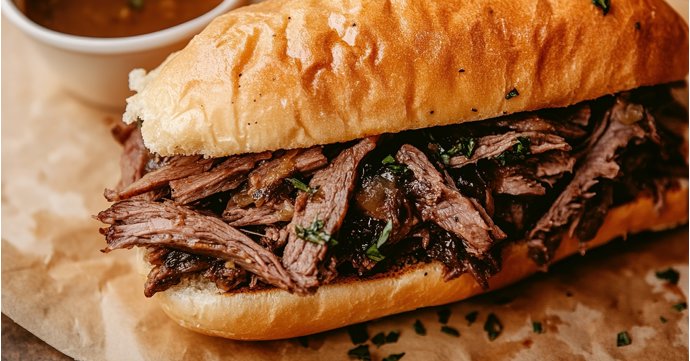It's a topic few people want to consider — being incapacitated and unable to make decisions for yourself. But rather than ignoring the distressing issue, to get plans in place, should the worst happen, is the fastest way to ease a worried mind.
SoGlos chats to associate solicitor Rebecca Tribble at WSP Solicitors to weigh up the pros and cons of different forms of legal protection to ensure your life travels in the direction you choose.
Why is power of attorney so important?
A power of attorney is a legal document which gives another person (an attorney) the power to make certain decisions on your behalf, including when you lack mental capacity to make decisions for yourself.
The attorney does not need any special legal knowledge, but should be someone you trust and know well. Depending on the type and terms of the power of attorney, your chosen attorney will be able to help you manage your finances, sell your home, and make healthcare decisions for you.
Without a power of attorney in place, if you lose mental capacity no one will have the legal power to make these decisions for you. In that situation, your loved ones would need to apply to the court for an order giving them authority to make decisions on your behalf. The court process can take a long time and be expensive.
Any of us may lose capacity as a result of illness or an accident. Without a power of attorney in place, there may be serious delays in arranging proper healthcare or accessing your money.
By having a power of attorney in place, you can ensure you have control over the choice of attorney; and will reduce the difficulties your loved ones will face if you lose capacity to manage your own affairs.
When is the best time to start thinking about the topic and why?
It’s never too early to put in place a power of attorney, however, it can be too late to put one in place. Many people don’t consider putting in place a Lasting Power of Attorney (LPA) as they are ‘okay’ at the moment, and want to wait until they are older or aware they are starting to lose capacity.
Sadly, it is often too late at that point as they may lack the required mental capacity to sign. As part of the process of making your LPA, a third party (such as your solicitor) must sign to confirm your capacity at the time of signing. It is far better to make the LPAs when you have no issues with capacity and have them stored away safely, ready to use whenever they are required.
In order to be used, once they have been signed LPAs must be registered with the Office of the Public Guardian (OPG). The registration process is currently taking around 20 weeks to complete, which can result in additional stress for you and your loved ones who will not be able to make decisions for you until the registration process is complete.
Why are there two different kinds of power of attorney?
An Enduring Power of Attorney (EPA) made prior to October 2007 is valid and effective. However, it only applies to property and financial decisions. There is no power to make healthcare decisions. EPAs can be used without OPG registration, and for this reason were considered to be potentially open to abuse.
Under an EPA, the attorneys come under a duty to register the EPA with the OPG only when they have reason to believe you are losing capacity to make your own decisions. There is a risk if the EPA was not properly completed when it was signed, this will come to light only during the registration process. It is not possible to amend an EPA once it has been made.
In October 2007, EPAs were replaced by LPAs to offer more flexibility — there are two types of LPA, one relating to property and financial affairs and one relating to health and welfare.
Property and financial affairs LPAs are similar to the old EPAs. They cover decisions like paying bills; buying or selling property; and managing your bank accounts.
Health and welfare LPAs cover decisions such as medical treatment, where you might live and other welfare decisions. These could extend to simple decisions such as a person's daily routine (washing, dressing and eating) to authority to give or refuse consent to life sustaining medical treatment.
Even if you already have an EPA in place, WSP Solicitors recommends making a health and welfare LPA to ensure your loved ones have the power to make those decisions on your behalf.

How do they both work?
An EPA can be used without being registered, if the person who made the EPA consents and still has mental capacity. However, EPAs must be registered once the individual lacks mental capacity. This can create a delay in accessing funds while you wait for the EPA to be registered. The Office of the Public Guardian is currently taking around 20 weeks to register both EPAs and LPAs.
LPAs must be registered in order to be effective, regardless of an individual’s mental capacity. For this reason, most solicitors advise registering the LPA as soon as it is made. This means you can be confident your document is correct. You can then store the registered LPA safely until you need it, and will have control over when to pass it to your attorneys, who will then be able to use it as soon as it is required.
Once registered, all types of power of attorney give authority for your attorneys to help you make decisions, or to make decisions for you when you are unable to do so yourself.
Why are Enduring Powers of Attorney no longer best practice?
LPAs offer greater flexibility and clarity regarding decision making authority, which can better protect individuals’ interests, especially in complex situations or as their needs change over time. Additionally, EPAs lack safeguards making them potentially more vulnerable to abuse or misuse.
An LPA requires a certificate provider, who signs the document to confirm the person making the LPA understands the power they are giving and is not subject to any undue influence or pressure. As a result, LPAs are generally considered more comprehensive and protective, which is why they are preferred over EPAs and the law was changed in 2007.
Is there anything you’d like to highlight about Lasting Power of Attorney that people may not realise?
There are a lot of common misconceptions about why an LPA may not be necessary. Many believe their next of kin can make important decisions on their behalf. However, no one can act on your behalf or make decisions for you if they have not been legally authorised to do so.
Many believe you do not need an LPA until you become elderly or of ill health. However, an LPA can be made by anyone over 18 with full mental capacity. Anyone can lose capacity and become unable to make decisions due to an accident, being in a coma, or other mental illness.
Making an LPA gives you peace of mind. If you wait and lose capacity (which might happen unexpectedly), it will be too late to make an LPA and your loved ones will need to apply for a deputyship order from the Court of Protection. This can take a very long time and is costly. It will be much more stressful for your loved ones.
Many believe if you have a joint bank account with a spouse or loved one, you can still access your funds once you’ve lost capacity. But if you were to lose capacity, the bank can remove access and freeze the account until they receive the registered LPA.
A property and financial affairs LPA can be used with your consent as soon as it is registered. Many people may have mental capacity to manage their own affairs, but would like support to visit the bank, talk on the phone or use the internet.
When it works well, what kind of difference does power of attorney make to people’s lives?
Having a registered LPA in place provides peace of mind as it allows you to plan ahead and ensure your affairs will be managed according to your wishes.
Decisions are more likely to be made in your best interests, as you are choosing people you trust to make those decisions for you, rather than leaving a court to decide who to appoint on your behalf.
Unlike with an EPA or court order, you can include specific guidance for your attorneys under an LPA to help them make decisions for you.
Knowing a trusted person will act in your best interests can alleviate anxiety about the future. Having the correct documents in place at a time of crisis will make the situation much easier for your loved ones, who will be able to step in at a time of difficulty to start helping make decisions in your best interests.






















